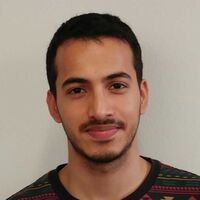
Lights, Camera, Locarno
The timing was less than ideal. There were libraries to synthesize, plasmids to clone (and reclone), presentations to polish, data to salvage, sort, slice. But they needed to wait: there was a train to board, with rain on its windows.
I was not alone. There were others, too. Bradley, Adnan, Guilia, Mai. They too had left their libraries (and plasmids and presentations and data) for the train to Locarno. We were this year’s Science Ambassadors to observe and to learn from artists at the Locarno Film Festival, and also to speak on our science.
In other words, we knew precisely nothing of what lay before us.
Our destination Locarno wore a sunny disposition. The lake shone. An unruly glittering. The city swelled with people in white shirts and wide hats. Leopards snarled on the neon yellow passes that dangled at people’s necks. The festival was here.
Locarno77. The 77th anniversary of the film festival.
We were housed in a school with the other 140 students (of filmmaking) of the festival’s BaseCamp. Chairs and benches were stacked in the corridors, and beds had taken their place in the classrooms. We hopped from one screening to the next, spoke to filmmakers and artists deep into the night, swam in the lake, presented our work, and participated in expansive discussions about the future of digital/environmental/social survival (Spoiler: It’s bleak).
There were some incredible films. One was the premiere of The Seed of the Sacred Fig, that throws into stark relief the unrest in Iran as it corrodes into a family scrabbling for fresh values to live by. Another was Crickets, It’s Your Turn, a tale of a woman in Kazakhstan slipping into harrowing circumstances among animals masquerading as men.
We earned much insight into the artistic process talking about these films. I recall one conversation with a screenwriter from Berlin, Samuel. We spoke about narrative structures and the capacity of stories to offer room for everything: Science, Art, Vulgarity, Despair, Joy. How, ultimately, it is through the sieve of unspoken stories that our experiences filter into memory. The spotlight shone on experience and emotion unlike the sharp sterile approach that the scientific process demands.
In turn, how I spoke about my science began assuming new shapes. In explaining my work with filmmakers, I ran into several false starts. I began from the bottom, as any loyal reductionist might, with questions that are ‘scientifically interesting’: What are the lives of bacteria in and on their hosts? What does it mean to be sick when the microbes in the gut list off-balance?
Their eyes glazed over; this wasn’t working.
I tried again: What is my experience reading/doing science? In the frame of this unassuming question, things took on a different, more personal color. It began with bacteria as co-habitants of the same planet, whose story also spanned 4 billion years, and the legacy of the kinship we have forged with them. A dark, busy world teems in my organs, and yours too. Skin, mouth, gut–all flush breeding grounds for foragers, hitchhikers, spectators. And for war. And when we lose, we feel it. It can be an awkward hobbling to the washroom after a questionable meal, or a sinister polyp bleeding into the intestine.
It quickly became apparent that art and science never needed bridges: they are both definingly human endeavors to go beyond oneself. The separation is artifice.
It is a grand idea, the scientific ideal–to know the universe and all that’s in it–but I do it because I enjoy it and because it roots me to the world. Around me, beyond me. This echoes the artist’s thrust.
On the heels of this realization was already Day 11. Not many passes dangled in the city anymore. The heat had lifted. A sad train sat at the station, and we were its reluctant passengers.
The rain in Basel had let up. The plasmids awaited me patiently and forgave me my absence.
With renewed enthusiasm, I seized my pipettes. There was so much art waiting to happen.
Raj
I'm Raj, a doctoral candidate in the Platt group, and I'm working towards equipping bacteria with tools to detect pathology in the human gut. I help bacteria learn new tricks–to sense volatile chemicals that indicate disease, and to improve upon Transcriptional Recording, a stunning new technology developed by the group to dissect bacterial physiology.
I grew up in the Indian south, in Chennai, next to the sea, where the heat of the city is rivalled only by the warmth of its people. I moved to Germany for my post-secondary education, pursuing a bachelor's in Regensburg and a master's in Heidelberg, before moving to Basel.
Through this journey, science, literature and music have been my indispensable succour. I have lost myself in the pages of microbiology as much as I have snuggled into the pages of fiction or lapsed into meditations on Indian classical music. I have borrowed so much from them all, and I'm inspired to weld the gaps between them. I'm still uncertain how, but I'd venture the answer (as most answers are) lies in art.
Film in particular is such a permissive and arresting art form. I have enjoyed little opportunity to exchange thoughts with its makers and connoisseurs. And that is what I'm most looking forward to from the Locarno Film Festival: to see how others around me think and frame their lives in stories and art, to experience their synthesis of Thought and Expression, and perhaps, with a bit of luck, add a brushstroke to the canvas myself.